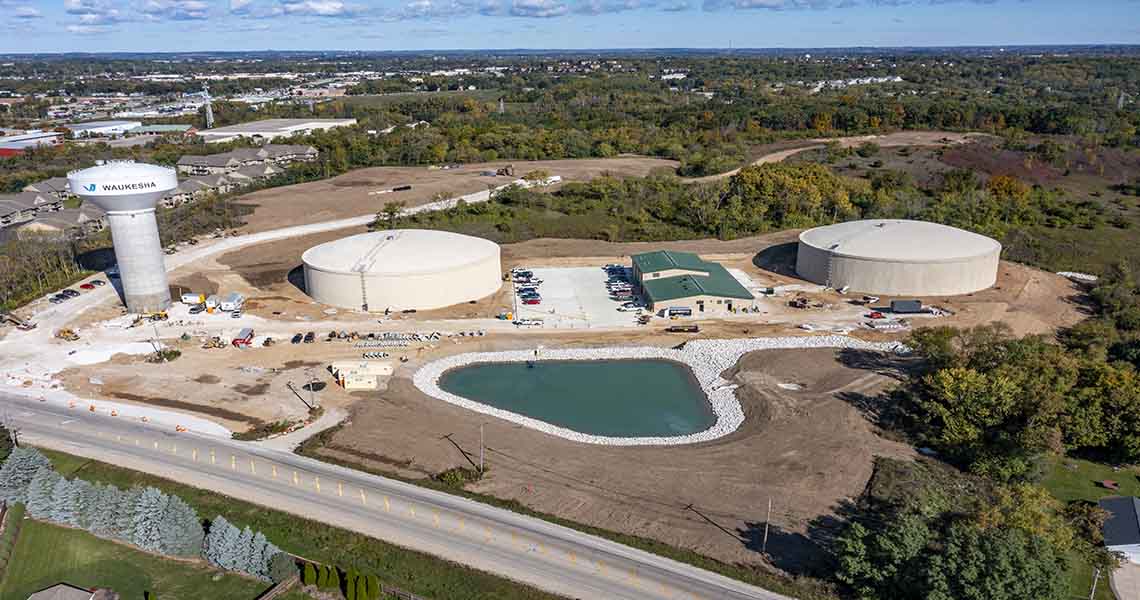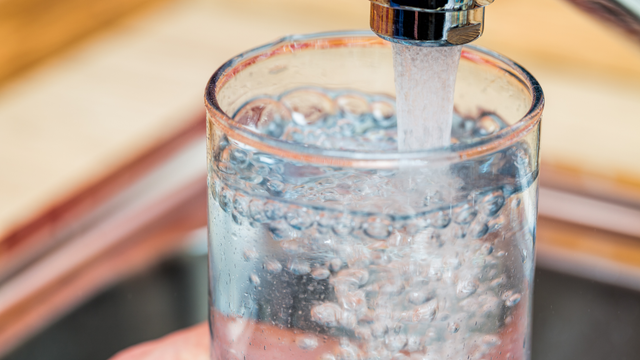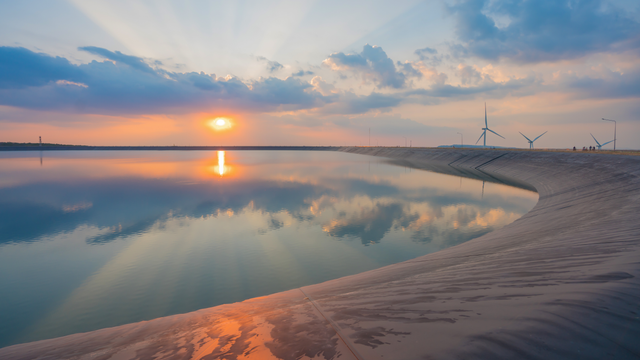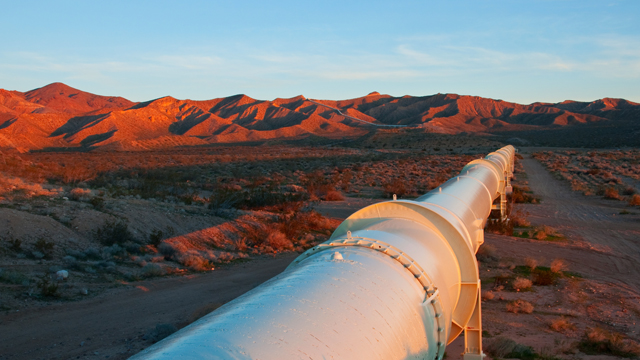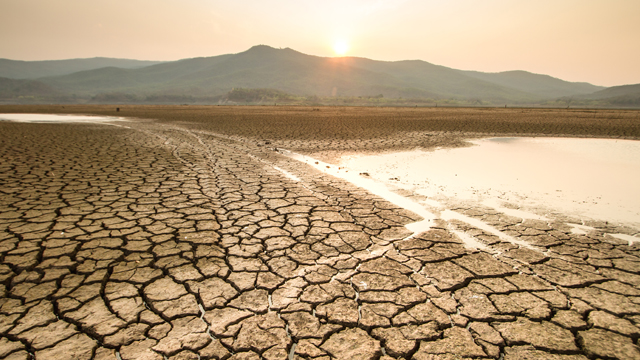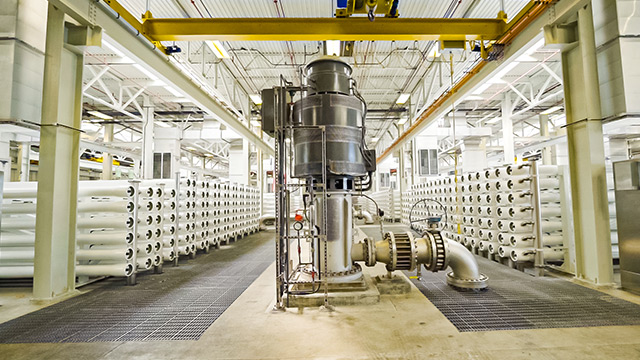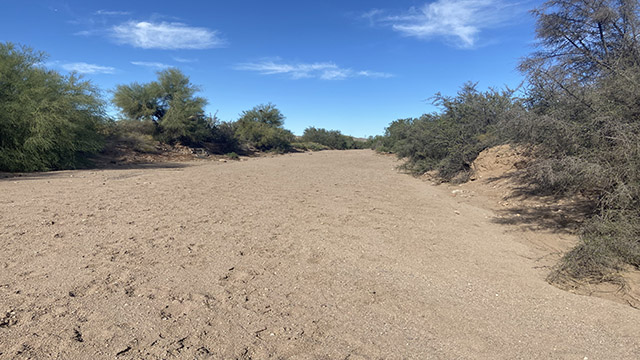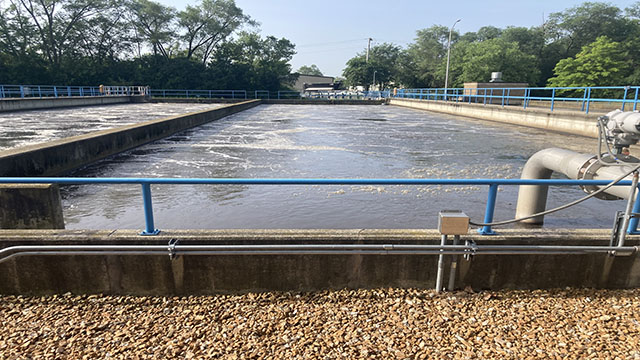Water first started flowing through the Great Lakes Water Supply Project in October 2023, culminating nearly 20 years of effort to secure a new, safe, and reliable water supply for the City of Waukesha. With Black & Veatch as Construction Manager, the 36-mile-long pipeline system was an unprecedented feat of sustainable infrastructure. As the first diversion allowed under an international agreement to protect water supplies in the Great Lakes basin from overuse, the project established Lake Michigan as the city’s new primary drinking water source, not only replacing its depleted and contaminated groundwater source, but also enabling Waukesha to return 100% of the water it uses to the lake.
Making the Switch – Why It Was Needed
Waukesha Water Utility (WWU) provides drinking water treatment and distribution services to the City of Waukesha. The community of approximately 72,000 residents is close to Milwaukee and about 20 miles from Lake Michigan. Prior to the Great Lakes Water Supply Project, Waukesha had relied entirely on groundwater pumped from the St. Peter Sandstone Aquifer. It was not alone. Communities across southeastern Wisconsin and northeastern Illinois had also long relied on the aquifer to meet their water demands. Steady depletion of the groundwater, faster than nature could replenish it, along with concentrations of radium that exceeded federal standards, forced WWU to seek a new, long-term, more sustainable supply source.
It took nearly 10 years of negotiation involving the U.S. and Canadian governments, eight U.S. states, and two Canadian provinces before Waukesha eventually gained approval to use water from Lake Michigan and replace the aquifer as the city’s primary supply source. It was the first-ever diversion allowed under the Great Lakes Compact, a seminal agreement signed into law in 2008 that bans use of Great Lakes water outside the basin, with very limited exceptions.
Making the Switch – How It Was Achieved
The project connects WWU to water from Lake Michigan via the City of Milwaukee’s supply system. A new pumping station pushes water from Milwaukee through a 13-mile-long, 30-inch-diameter ductile iron pipeline (DIP) to Waukesha. The line has the capacity to deliver up to 8.2 million gallons a day. In turn, a 23-mile-long, 30-inch-diameter DIP pipeline and discharge structure sends fully treated wastewater back to Lake Michigan through a tributary, returning 100 percent of the supply that Waukesha takes while also supporting fish habitat in the tributary. Project facilities further included a new booster pumping station in Waukesha, two 8.6-million-gallon ground storage tanks, and a 1-million-gallon water tower.
Most of the pipeline was installed using open-cut construction methods. Sections that were horizontal directionally drilled and horizontally bored required trenchless construction because of wetland, watercourse, freeway, railroad, and major intersection crossings.
As the project’s third-party construction manager, Black & Veatch performed constructability and cost-estimating reviews during design then completed a rigorous pre-qualification process for all prospective biddings. During construction, the team managed five separate construction contracts. Responsibilities included overall coordination of the contracts, construction inspection, material testing, verifying compliance with Wisconsin Department of Transportation (WisDOT) and Wisconsin Department of Natural Resources (WDNR) permits, and communication with local officials on construction progress and impacts to the community.
Completing the transition to the Lake Michigan supply in October 2023, the project met Waukesha’s mandated deadline to comply with federal and state drinking water standards. In the process, WWU’s perseverance and forward-looking approach to the solution delivered a marvel of sustainable infrastructure that supports long-term water resilience for the community and region.
